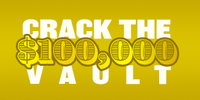Some may have seen it and not known what it was, or thought it was a regular ATM. The southeast's first Bitcoin Teller Machine (BTM) was installed in early August.
For those who aren't in the know, a BTM is the opposite, in fact, of an ATM.
"It basically sells Bitcoin," explained the machine's owner Dale Mychasiw. "It doesn't dispense cash. So it's just like a Coke machine, where you put in your money and you get a Coke. My machine, you put in yor money and you get a Bitcoin. So it's pretty much that. And you could also buy from the alt-coins, there's a whole wide variety of alternative currencies, that's crypto-currencies, that's what they call them."
For those who are in the know, Mychasiw said some will travel a ways to invest.
"I've got customers that make special trips from Estevan and Midale, and those areas in southern Saskatchewan, to Regina to buy Bitcoin," he noted. "I've always felt that southern Saskatchewan is a strong economic region and I felt that Bitcoin would be in demand. So that's why I went to Weyburn to install a machine."
According to Mychasiw, "You can send Bitcoin anywhere around the world to anybody at any time, and the transaction takes, like, two minutes."
But some are still asking, what is Bitcoin?
"Myself, I call Bitcoin 'cold, hard, cash'," he explained. "It's cold, because there's no 1-800-bitcoin, and there is no CEO of Bitcoin."
In fact, Bitcoin is built on a complete decentralized network, and it doesn't discriminate between humans from one end of the planet to the other, let alone between humans and machines.
"If you have a wallet app, and an internet connection, you can transact on the network."
Unlike with credit cards, where you can have transactions reversed, Bitcoin offers zero consumer protection.
"It's hard, because it's a store of value, there's only so many of them created per day, and that doesn't change."
"Bitcoin is very similar to gold, where there's only so much gold that can be taken out of the ground at once, and there's only so much of it above ground, so there will only ever be 21 million Bitcoins produced, and there's about 18 million of them out there already produced, and that will never, ever change," Mychasiw explained.
"Soft money would be our currency that everybody uses today, created by the government, by the banks, and they have the ability to create more of it, create less of it, up the interest rate, lower the interest rate," he contrasted.
"Why I call it cash is that if you successfully sent Bitcoins from one wallet to another, the only way you can get that back is if the person controlling the other wallet sends them back to you," Mychasiw noted.
He compared Bitcoin to a literal cash transaction with a physical bill that would require being handed back in order to be refunded.
Mychasiw said some of his customers are finding themselves in the position where they can do a transaction with the choice of using either the traditional monetary system or Bitcoin.
"There is no question there's a learning curve on how to use it," he noted.
"You have to know who you're dealing with, and understand that if something goes wrong, there won't be anybody there to help you. If you're buying something on the internet, you have to trust that that company is going to be sending you what you ordered, when you paid cash, and if they don't, you've paid cash, right?" he shared.
"So you have to know your counter-party and you have to know the pros and cons. Sometimes the Bitcoin would be a better choice, sometimes the financial system would be a better choice."
He said in spite of the 'cashness' of Bitcoin, some may feel they're investing in a more secure alternative to the monetary system, or simply for the acumen of enabling more choices for the future.
Watch 'Bitcoin in one lesson' HERE.














